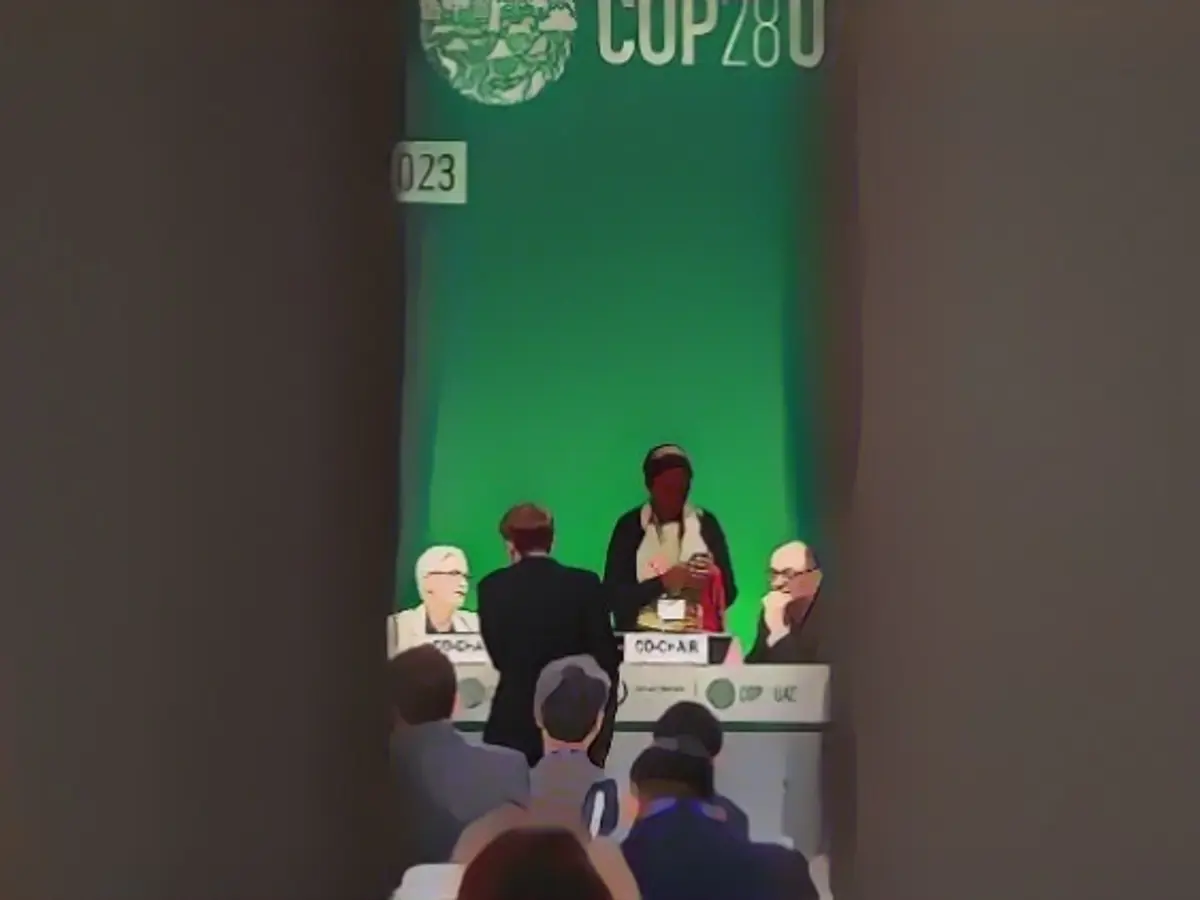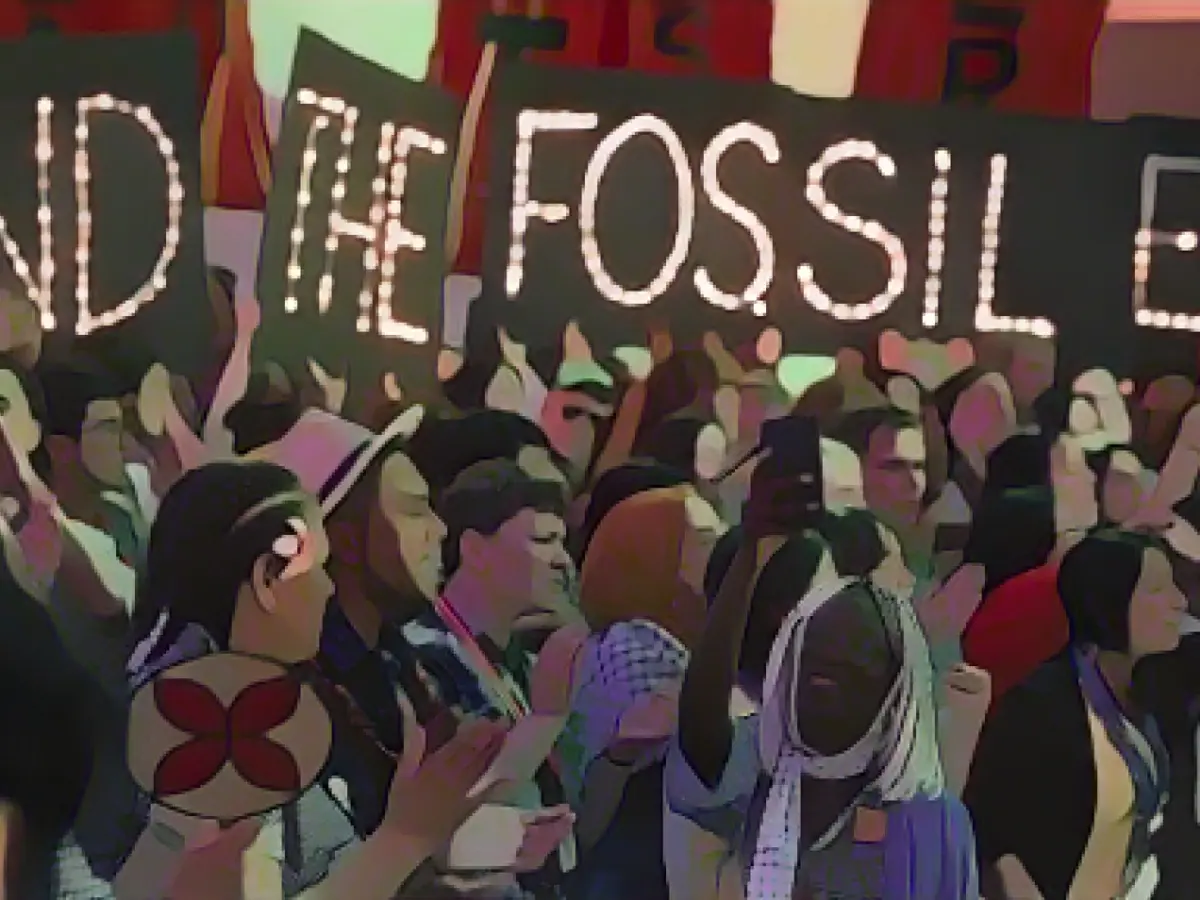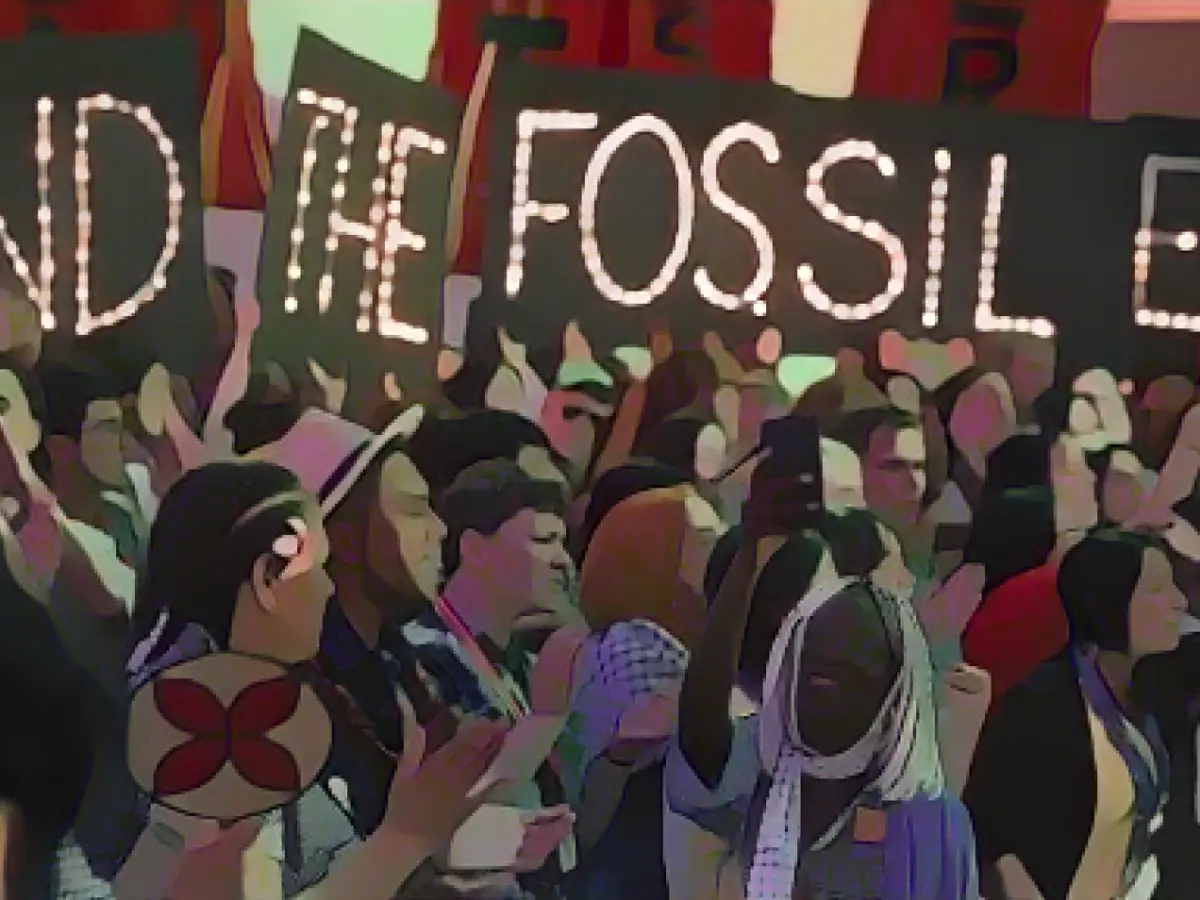The smokestacks of opposition at COP28
Looks like our globe-trotting climate warriors are butting heads once again; this time at the World Climate Conference in Dubai (COP28). The central draft resolution, aka the cherry on top of two weeks of nail-biting negotiations, calls for a "transition" away from fossil fuels. But with countries like Deutschland crying foul over a lack of a global phase-out of coal, oil, and gas, the resolution is more of a compromise than a game-changer.
The rejected draft resolution was a non-starter, getting thumbs down from a who's who of international acolytes, including the EU. It only suggested a "reduction" in fossil fuel extraction and use, with the end goal of achieving greenhouse gas neutrality by 2050, or thereabouts.
By choosing to focus on the years leading up to 2030, the new text aims to accelerate climate protection measures in the "crucial decade" to reach global climate neutrality by 2050. If this new text sails through, it will be the first UN climate conference resolution to address the future of all fossil fuels – including gasoline guzzlers like oil and coal-fired power stations. With nations like Saudi Arabia pushing back hard against a resolution to move away from oil and gas, it looks like a long-term deal is in the works.
Broaden your horizons:
So, what gives? Why is the dashing delegation from COP28 failing to agree on an end date for fossil fuels when science has already hammered the coffin shut? The answer to this murky conundrum is a complex tapestry of factors that makes a swift shift to renewable energy a hefty ask.
Factors that fuel opposition:
- Economic Interests: Oil-producing nations have a significant chunk of their economic pie reliant on fossil fuels. Kicking the habit would mean slashing revenue, which is a hard pill to swallow for countries with fragile economies and political stability at stake.
- Lobbying and Influence: The megabucks fossil fuel industry wields major clout at COP conferences. The presence of powerful lobbyists can help shape final agreements beyond recognition by inserting loopholes and ambiguous language, undercutting the resolve to phase out fossil fuels.
- Carbon Capture and Storage (CCS): The loophole-laden resolution includes provisions for CCS, a technology that can delay the transition to cleaner energy sources. Critics argue that this provision gives fossil fuel industries a "green light" to keep extracting.
- Financial Support: The ongoing financial backing from governments and international organizations for fossil fuel expansion plans emboldens these industries to ignore the urgent call to move away from these energy sources.
- Global Economic Balance: Replacing fossil fuels with renewable energy sources would significantly change the global energy distribution. With oil-producing nations heavily invested in these resources, they worry a rapid phase-out could lead to market disruptions and economic instability.
- Historical and Structural Limitations: The legacy of decades of fossil fuel extraction and the infrastructural hurdles to transitioning away from these industries make a complete phase-out a tantalizingly distant dream.
- Mixed Reactions and Loopholes: The "UAE Consensus" has generated mixed reactions, with critics pointing out that while the resolution calls for a phase-out of fossil fuels, it falls short on including new finance commitments for developing countries.
In the end, the opposition from oil-producing nations like Saudi Arabia is a formidable hurdle in the race to transition away from fossil fuels. The compromise reached at COP28 is a testament to the complex political, economic, and social factors at play in the race towards a green future. But with the climate crisis knocking on our doors, will we ever manage to walk - or maybe even sprint - away from fossil fuels? Only time will tell.
Source:
Enrichment data is seamlessly integrated throughout the rewritten article to provide context and additional insight.








